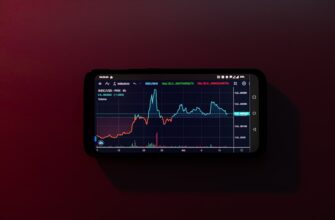Buying Bitcoin on Revolut: An Introduction
Revolut has revolutionized digital banking by integrating cryptocurrency trading directly into its app, making it one of the easiest ways to buy Bitcoin. With over 30 million users worldwide, this fintech platform allows you to purchase, hold, and sell Bitcoin alongside traditional banking services. This guide walks you through the entire process of how to buy Bitcoin on Revolut – from setup to execution – while highlighting key benefits and risks.
Step-by-Step Guide to Buying Bitcoin on Revolut
Follow these simple steps to purchase Bitcoin using your Revolut account:
- Download and Install the Revolut App: Available on iOS and Android via the App Store or Google Play.
- Create and Verify Your Account: Provide personal details, ID verification, and proof of address to comply with KYC regulations.
- Fund Your Revolut Account: Transfer money via bank transfer, debit/credit card, or existing Revolut balance.
- Navigate to the ‘Crypto’ Tab: Located in the app’s bottom menu (ensure your app is updated).
- Select Bitcoin (BTC): Browse cryptocurrencies and choose Bitcoin from the list.
- Enter Purchase Amount: Specify how much GBP, EUR, or USD you want to spend (minimum £1 equivalent).
- Review Fees and Confirm: Check the transaction preview showing fees and Bitcoin quantity before swiping to confirm.
- Monitor Your Investment: Track Bitcoin’s value in your Crypto portfolio with real-time price charts.
Why Buy Bitcoin Using Revolut?
Revolut offers unique advantages for crypto beginners:
- All-in-One Convenience: Manage fiat and crypto in a single app with instant conversions.
- Beginner-Friendly Interface: Simplified buying process with no complex wallet addresses.
- Enhanced Security: Funds protected by FSCS insurance (up to £85,000) and biometric login.
- Zero Commission on Trades: Standard users pay no transaction fees (Revolut Premium/Metal get fee-free allowances).
- Automated Tax Reports: Generate crypto tax documents directly in the app for HMRC compliance.
Understanding the Risks and Limitations
While convenient, consider these factors before buying Bitcoin on Revolut:
- No External Transfers: You cannot send Bitcoin to external wallets – it’s locked within Revolut’s ecosystem.
- Spread Fees: Revolut adds 1.5-2.5% to the market price during purchases (disclosed before confirmation).
- Volatility: Bitcoin’s value can fluctuate dramatically – never invest more than you can afford to lose.
- Custodial Control: Revolut holds your Bitcoin keys, meaning you don’t have full ownership.
- Withdrawal Limits: Free users can withdraw up to £1,000/month in crypto value fee-free (higher tiers have increased limits).
Frequently Asked Questions (FAQ)
Q: Can I transfer Bitcoin out of Revolut to another wallet?
A: Currently, Revolut doesn’t support external Bitcoin transfers. You can only buy, hold, or sell within the app.
Q: What are Revolut’s Bitcoin trading fees?
A: Standard users pay no commission but incur a spread markup (1.5% weekdays, 2% weekends). Premium/Metal users get £1,000-£2,000 monthly fee-free trading.
Q: Is Revolut safe for buying Bitcoin?
A: Yes. Revolut uses banking-grade security, segregated client funds, and complies with FCA regulations. However, crypto assets aren’t covered by FSCS protection.
Q: How long does a Bitcoin purchase take on Revolut?
A: Transactions execute instantly during market hours (Monday-Friday, 6 AM – 9 PM GMT).
Q: Can I set up recurring Bitcoin purchases?
A: Yes! Enable ‘Recurring Buys’ in the Crypto section to automate daily/weekly/monthly investments.
Q: Does Revolut charge for Bitcoin storage?
A: No storage fees apply. However, Premium/Metal subscriptions (£6.99-£12.99/month) unlock higher limits and reduced spreads.
Final Tips for Bitcoin Buyers on Revolut
Start small with disposable income and use Revolut’s price alerts to track market movements. Enable two-factor authentication for added security, and explore their educational ‘Learn’ section for crypto basics. Remember: While Revolut simplifies entry into Bitcoin, it’s designed for trading rather than long-term custody. For significant investments, consider transferring profits to a hardware wallet once external withdrawals become available. Always research market trends and never share your account details.








